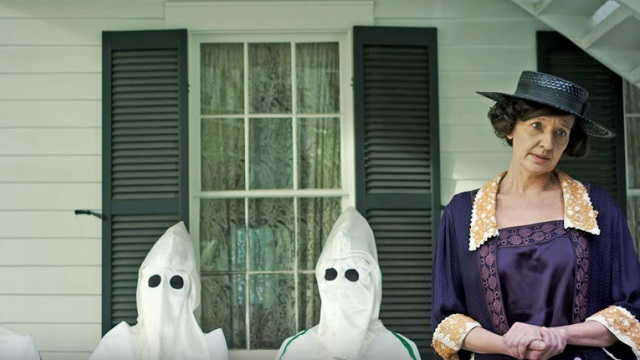The same week that the Oscars sucked all the air out of the room, the Golden Raspberries announced their awards. One of the overriding narratives of the Razzies is that they haven’t been celebrating the dregs of film history, instead picking on easy targets. But, it’s not as easy as that. The Razzies has always been an inverse Oscars, where they frequently use the platform to make political or artistic statements instead of celebrating the worst of the worst. Previous years have included the 2011 all-Jack and Jill Razzies that served as a rebuke to any Adam Sandler film (followed by Sandler’s Worst Actor award for That’s My Boy), and 2004’s awarding Worst Actor and Supporting Actor to George W. Bush and Donald Rumsfeld for their work in Fahrenheit 9/11.
This year, the Razzies went hardcore political again, bestowing the majority of awards to two separate movies: Dinesh D’Souza’s hard right documentary Hillary’s America and Zack Snyder’s politically muddled Batman vs Superman: Dawn of Justice. Hillary’s America: The Secret History of the Democratic Party is the first supposed documentary to win Worst Picture in Razzie history (or at least since Saving Christmas, which is not a documentary). It also won for Worst Director, Actor, and Actress. At the same time, Batman vs Superman also won four awards – Supporting Actor, Screenplay, Screen Couple and Sequel – and its politics are notably darker and more confused (I’ve read comments where Batman and Superman have flip flopped in representing Democrats and Conversatives in a metaphor for this year’s election (I’ll leave the veracity of the films politics to people who have actually seen the film).
But, this brings up the moral responsibility of both the filmmaker and the theaters. We’ve previously discussed whether or not we have to agree with the artist and the political message of the movie, and what happens when the movie might have ambiguous messaging. but what are the filmmakers’ societal responsibilities or are there any? For most movies, we operate from a base allowance that the people behind the camera strive to improve society regardless of whether we agree with them or not. But, what if they’re stirring up conflict in a cynical ploy to make money or stay in the spotlight? And how can you tell if they’re being disingenuous?
Here’s a case in point: while watching Michael Moore’s Bowling for Columbine, Moore illustrated the dominance of military imagery in society by showcasing Lockheed Martin’s plant as a manufacturer of military weaponry, and how its transport of violence happens under the shroud of night. But, there was a major problem with this fact: while Lockheed Martin did manufacture weapons on massive military contracts, the plant near Littleton manufactured rockets to launch satellites into space. Even if I agree with Moore’s larger point about the amount American spends on the military, Moore’s illustration was disingenuous to the point of irresponsibility. I think this fact bending is irresponsible if only because it foolishly inserts an easily-disproven non-fact to discredit people who would argue on his side.
This isn’t just about documentaries, but also fictional films. Jonathon Demme’s The Silence of the Lambs is an exercise in feminism, but also in trans exclusion. Despite the film’s periodic insistence that Buffalo Bill was merely a mentally disturbed man and not a trans woman, many of the symbols that define Buffalo Bill are that of a transsexual. Feeling responsibility for this depiction, especially in the wake of queer protesting, Demme attempted to make amends with the queer community by making Philadephia, the AIDS drama starring Tom Hanks.
What if a film was pushing points that would actively sow discord or harm specific groups just to be lurid or controversial? What if a documentary was actively bending facts to prove its own case? What is the responsibility of a filmmaker to add to society rather than detract? And how do you tell the difference between different points of view or sensationalist irresponsibility?

